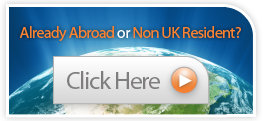P to T of Holiday Health
A - Z of Holiday Health - P - T
Below are some bite sized bits of information to helping you prepare for a happy, healthy and safe holiday.
P - Phobias (Fear of flying)
Phobias in general affect 4% of men and 13% of women, but the major phobia that many encounter before going away on holiday is the fear of flying.
Fears or phobias can often develop as you get older and see life as being more precious. Young mothers can feel protective for their children and so this too can bring on a nervousness to fly. Resons for fear of flying can affect those who have never flown and those that have flown before. Concerns can be from hearing or previously experiencing any of the following:-
bad weather, turbulence, take offs, flying over water, claustrophobia, terrorists, hijackings, fear of falling, and fear of heights.
Signs that you have a phobia are fast breathing (hyperventilation), which can lead to tingling around the mouth, flushes, sweating, feeling faint and or palpitations.
Phobias and fear of flying are often caused by peoples lack of understanding as to what to normally expect in a flight. To counter this fear just some guidance and education about planes, the airline industry and flying in general will help greatly.
Q - Quick Short Breaks
If you are driving for a major part of your journey make sure that you regularly take breaks plan into your journey a 15-minute break every two hours you are on the road. Obviously if you feel tired whilst driving stop at a service station for a coffee and short break or sleep before continuing.
R - Rehydration
When travelling to warmer countries than our own you will naturally lose more fluids from sweating but may lose more if you are unfortunate enough to get a bout of diarrhoea. You must therefore ensure that you rehydrate your body. Water is the best way of rehydrating but essential body salts may be necessary in extreme cases.
Please remenber that it is advised that the average adult should consume 2.5 litres of water per day. Of this, 1.8 litres must be obtained directly from beverages but in hot weather this should be increased.
S - Sexually Transmitted Diseases
Known now as STIs or STDs they are back on the increase in the UK and often caught while on holiday with a casual partner. They are caused by micro-organisms such as bacteria (chlamydia or gonorrhoea) and viruses (HIV, genital herpes).
It is therefore just as important while on on holiday that you use condoms which can help prevent the spread of HIV and reduce the risk of most other STIs for men and women.
T - Tiredness
One thing that you can try to relieve on holiday is tiredness. Often caused from our busy stressful lives. Normally a good nights sleep can help turedness in general but tiredness can be a more serious problem.
More recurring forms of tiredness can occur from perhaps a recent illness, pregnancy or breastfeeding. It can also be triggered by stressful situations, e.g., a recent bereavement, family or work problems or a recent house move.
A holiday can be a way to get your life back in order, watching what you eat and drink, avoiding alcohol and coffee especially in the evenings. If you are over or under weight try to get your weight under control, and often a feeling of tiredness is caused by lack of exercise. So introduce some physical activity into your routine, gradually increasing the duration and intensity, but ensuring that it is regular exercise.

CheapTravelInsurance.com is a trading name of Grovelawn Ltd. Registered in England. Company No: 05030300. Registered Office: 98 Station Road, Sidcup, Kent, DA15 7BY which for travel insurance are Introducer Appointed Representatives of Just Insurance Agents Limited who arrange and administer travel insurance on behalf of CheapTravelInsurance.com.
Just Insurance Agents Limited are registered in England. Company No. 05399196. Registered Office: Victoria House, Toward Road, Sunderland, SR1 2QF. Just Insurance Agents Limited are authorised and regulated by the Financial Conduct Authority (FCA) number 610022.


